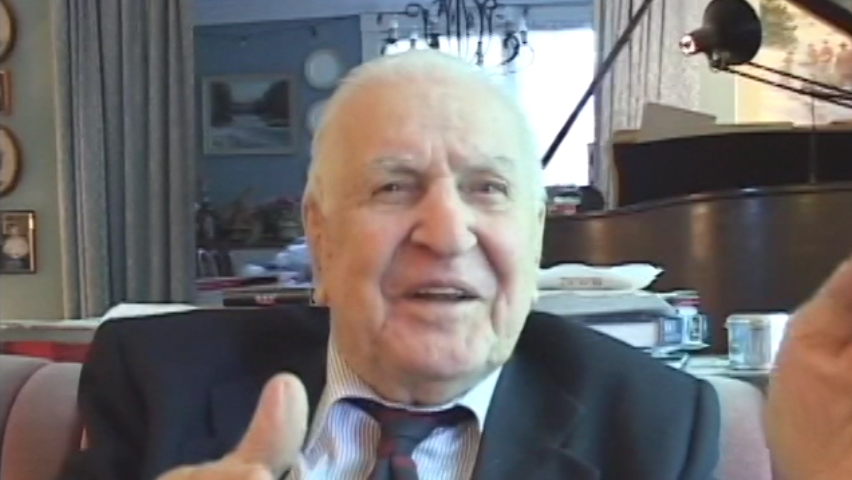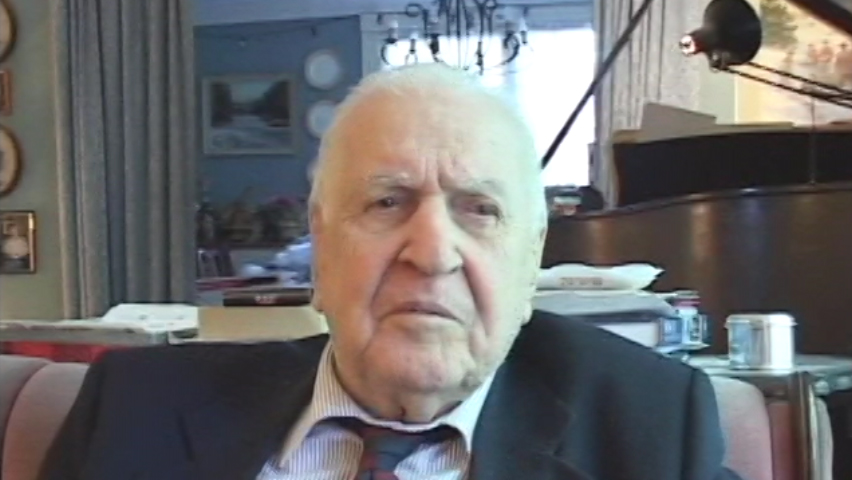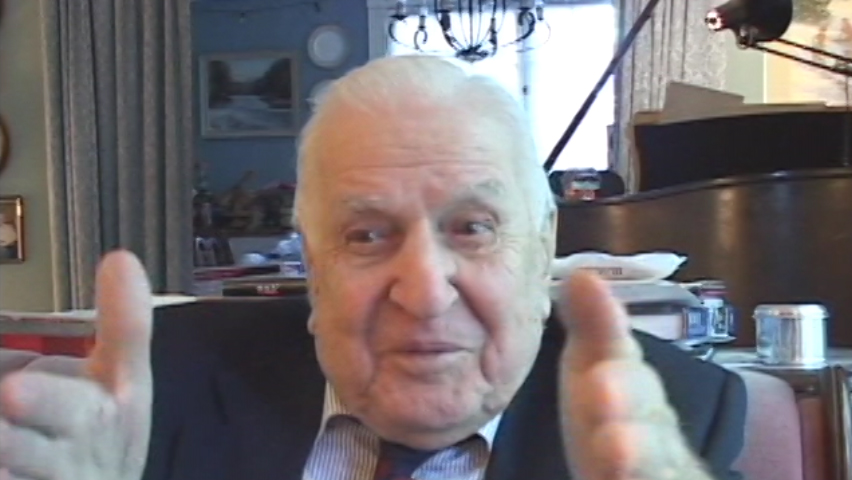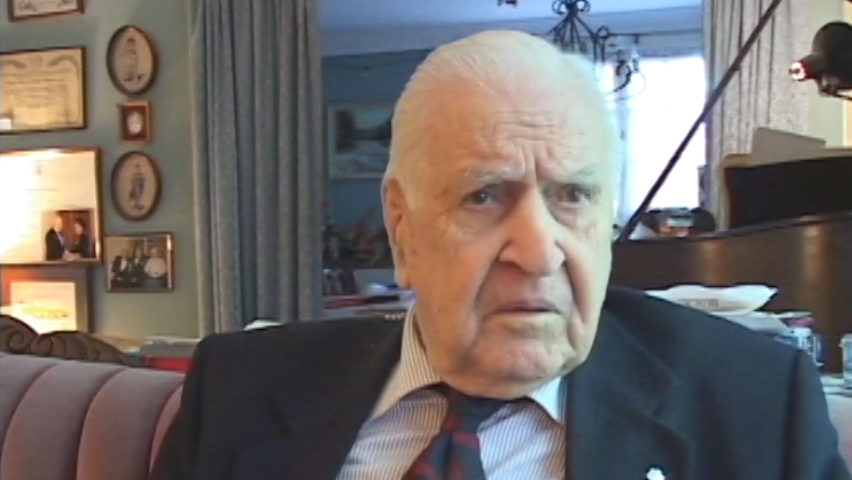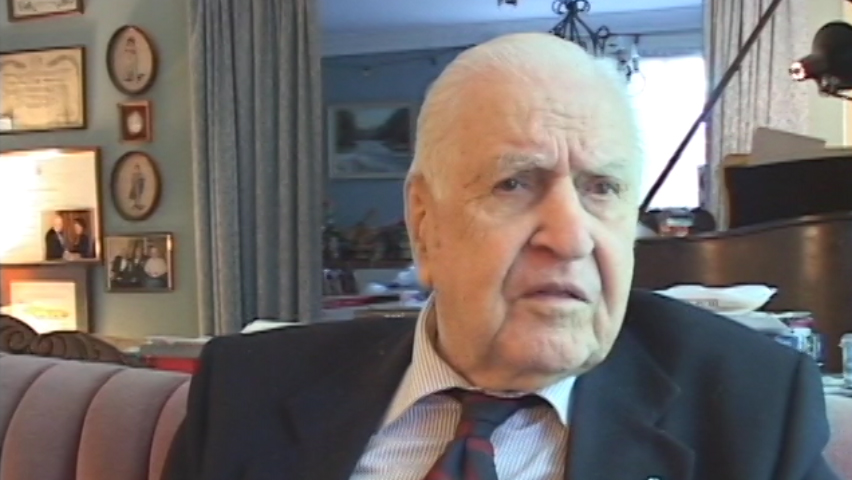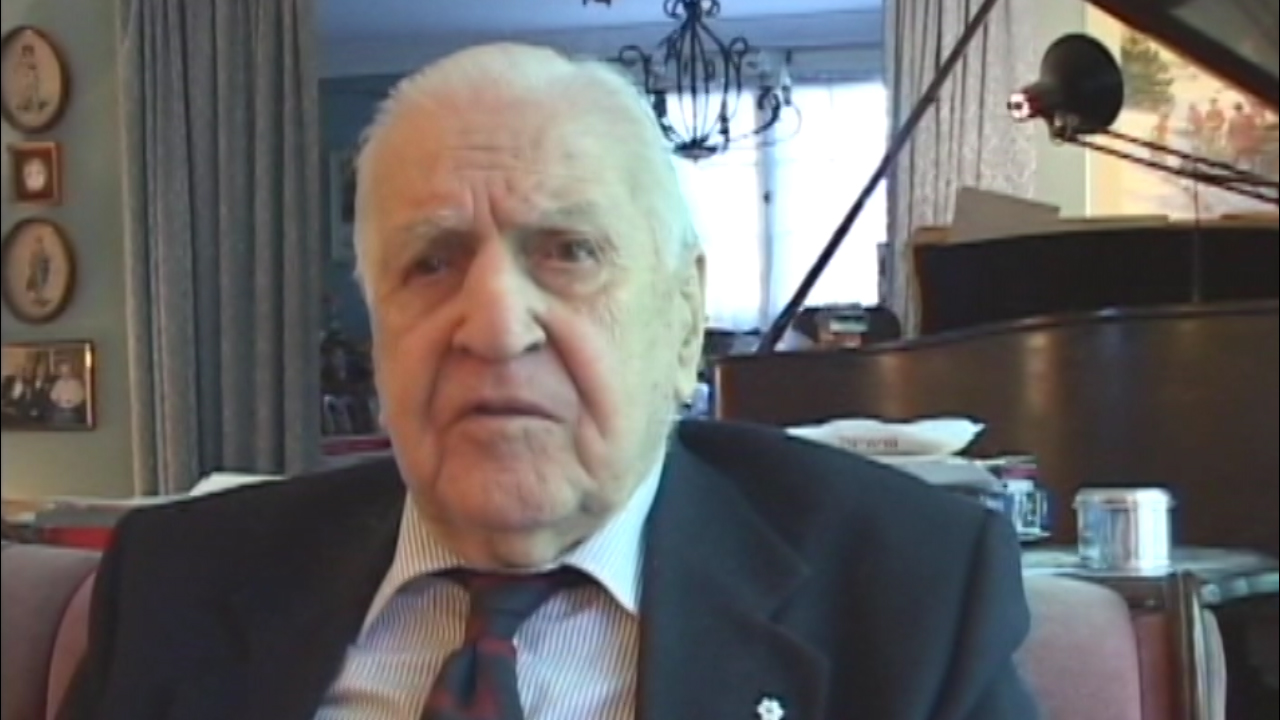Tough days
Heroes Remember
Tough days
Transcript
Description
Mr. Blackburn talks about how tough it was being in their first gun position, with dead bodies scattered around them, some of which had been there for a month. They are then moved into a very vulnerable position in full view of the enemy.
George Blackburn
George Blackburn was born in Wales, Ontario, on February 3, 1917. His father started out as a steam shovel runner in building the railroads in the United States. George also worked in journalism for a little while. In 1940 after the war had broke out he decided it was time to join the services. He was rejected from the navy and the air force because of his poor eye sight. It was then that he joined RCA. He went through training and it was there that he learned valuable lessons. George was part of the 4th Regiment. He experienced the Battle of Normandy. There he was a gunnery officer. Upon his return to Canada, Mr. Blackburn made Ottawa his home. His list of occupations include newspaper reporter, Director of Information of the Federal Labour Department, and Director of Fair Employment Practices. In addition, he has been a radio producer, an award-winning documentary scriptwriter, an award-winning playwright, published author, and a lyricist and composer. Mr. Blackburn also earned his Military Cross helping to save the Twente Canaal bridgehead in Holland.
Meta Data
- Medium:
- Video
- Owner:
- Veterans Affairs Canada
- Duration:
- 02:26
- Person Interviewed:
- George Blackburn
- War, Conflict or Mission:
- Second World War
- Location/Theatre:
- Northwest Europe
- Branch:
- Army
- Units/Ship:
- 4th Battery
- Occupation:
- Gunnery Officer
Related Videos
- Date modified:




